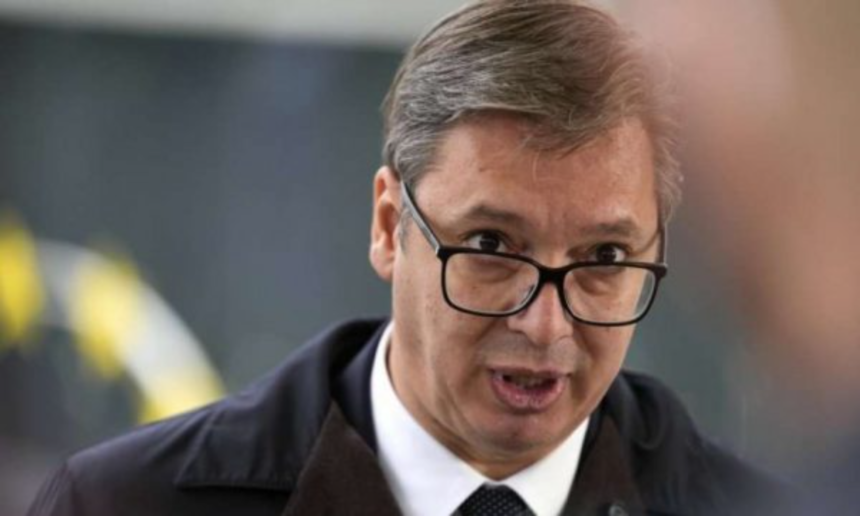Serbian President Aleksandar Vučić called on opposition representatives on January 14 to seek a consultative referendum to determine whether he should remain in office, in order to gauge his support among citizens.
In a video posted on Instagram, Vučić referred to a recent poll published by the Center for Research, Transparency, and Accountability (CRTA) in Belgrade, which indicated that in such a referendum, 52% of citizens would vote against his staying in office.
“If these claims by CRTA are accurate, it would be impossible for me to remain as President of Serbia. Therefore, it is necessary for opposition parties to submit only 67 signatures [from lawmakers]—and they have more than 80—to call for a consultative referendum on the President of Serbia,” Vučić said.
The opposition Party for Freedom and Justice stated on X (formerly Twitter) that this “regime trap” was an attempt to organize a referendum without meeting the required electoral conditions, bringing back false voters and running an unimpeded campaign on all television stations controlled by the regime.
Under Serbian law, a referendum is held to allow citizens to express their opinion on a proposal, to confirm an adopted act, or for matters of general importance. It can be either binding or consultative.
On January 11, CRTA released the results of a public opinion poll showing that, if a referendum were held now, 52% of citizens would reject Vučić’s presidency, while 34% would express confidence in the president.
At the same time, the poll showed that the majority of citizens in Serbia do not believe that a consultative referendum on the president’s trustworthiness would be a solution to the political crisis—a proposal made by Vučić.
Vučić stated that Serbia is under “joint and coordinated pressure from both abroad and within the political level.”
According to him, legitimacy is the most important thing in politics, and sovereignty derives from the will of the people.
“I will respect any decision made in the consultative referendum, and if the decision is that more than 50%—even by a single vote—wish for me not to be President of Serbia, I will resign immediately,” Vučić declared.
He said it was a “matter of discussion” whether the consultative referendum would be held in March, April, or May.
“This is a way to peacefully resolve the crisis caused by the immoral abuse of the tragedy, by respecting the objective findings of the public opinion poll. Thus, Serbia enters calmer waters,” he added, according to REL.
For more than two months, Serbia has seen blockages and protests, with citizens, students, and the opposition calling for political and criminal accountability for the collapse of a concrete shelter at the Novi Sad Railway Station on November 1, which resulted in 15 deaths and two serious injuries.
More than 60 faculties at four state universities have been blocked.
CRTA’s poll also revealed that 61% of Serbian citizens support the blockages and protests, with the majority (48%) believing that political responsibility for the collapse should fall on the relevant ministers, followed by the President of Serbia (39%).
The public opinion survey was conducted by CRTA with a representative sample of 1,030 respondents in Serbia, between December 20-28, 2024.
Authorities in Serbia have condemned the protests and blockages.







